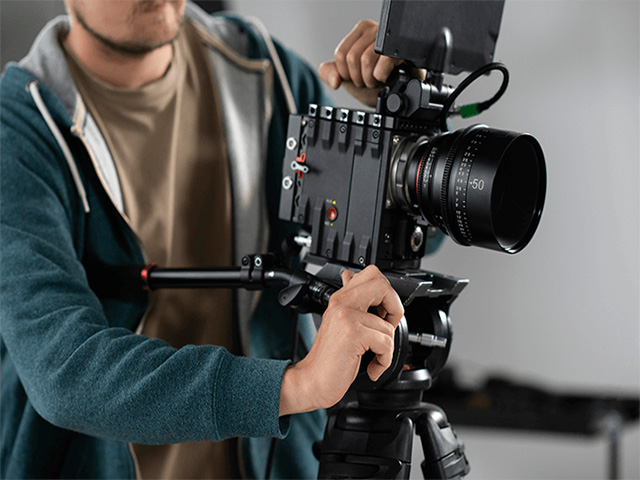4dee Technologies : Revolutionizing Reality - Video Documentary
Table of Contents
- Introduction
- What is a Video Documentary?
- Importance of Video Documentaries
- Types of Video Documentaries
- The Process of Creating a Video Documentary
- Why Choose 4Dee Technologies for Video Documentaries?
- Frequently Asked Questions
(FAQs)
7.1. What is the purpose of a video documentary?
7.2. How long does it take to create a video documentary?
7.3. What equipment is needed for shooting a video documentary?
7.4. Can I use existing footage for my video documentary?
7.5. How much does it cost to produce a video documentary?
7.6. What makes a compelling video documentary?
7.7. Can 4Dee Technologies assist with scriptwriting for a video documentary?
7.8. Do I need permission to film people for a documentary?
7.9. How can I distribute and promote my video documentary?
7.10. Can I incorporate interviews and testimonials in a video documentary?

Introduction
In today’s digital age, video documentaries have become a powerful medium for storytelling and conveying information. Whether it’s for educational, promotional, or historical purposes, a well-crafted video documentary can captivate audiences and leave a lasting impact. At 4Dee Technologies, we specialize in creating compelling video documentaries that engage viewers and effectively convey your message.
What Is A Video Documentary?
A video documentary is a non-fictional film or video production that aims to document and explore real-life subjects, events, or topics. It combines elements of storytelling, interviews, narration, visuals, and factual information to provide an in-depth understanding of the subject matter.
Importance Of Video Documentaries
Video documentaries serve multiple purposes and offer various benefits, including:
- Preservation of History: Video documentaries provide a means to capture and preserve historical events, stories, and cultural heritage for future generations.
- Education and Awareness: Documentaries can educate and raise awareness about important social, environmental, or political issues, promoting a deeper understanding and fostering empathy.
- Engaging Storytelling: Through a combination of visuals, interviews, and narration, video documentaries engage viewers emotionally, making complex topics more accessible and relatable.
- Authenticity and Credibility: Documentaries are often perceived as authentic and credible sources of information, providing a deeper level of trust and reliability.
- Promotion and Marketing: Video documentaries can be used as powerful marketing tools to showcase a brand, product, or organization’s values, achievements, or impact.
Types Of Video Documentaries
There are various types of video documentaries, each serving a unique purpose:
- Historical Documentaries: These documentaries focus on significant events, people, or periods in history, providing insights and understanding of the past.
- Social Issue Documentaries: These documentaries shed light on social issues such as poverty, inequality, human rights, and environmental challenges, aiming to create awareness and drive positive change.
- Biographical Documentaries: These documentaries explore the lives and experiences of individuals, whether they are public figures, artists, activists, or ordinary people with extraordinary stories.
- Nature and Wildlife Documentaries: These documentaries capture the beauty of the natural world, showcasing wildlife, ecosystems, and environmental conservation efforts.
- Investigative Documentaries: These documentaries delve into investigative journalism, exposing corruption, injustice, or hidden truths.
The Process Of Creating A Video Documentary
Creating a video documentary involves several key steps:
- Research and Planning: Thoroughly researching the subject matter, identifying key stakeholders or interviewees, and developing a comprehensive plan and storyline.
- Pre-production: This stage involves scriptwriting, storyboarding, scouting locations, arranging interviews, and gathering necessary permissions and releases.
- Production: The actual filming process, including capturing interviews, b-roll footage, and other relevant visuals.
- Post-production: Editing the footage, adding music, narration, graphics, and visual effects to create a cohesive and engaging documentary.
- Distribution and Promotion: Once the documentary is complete, it can be distributed through various channels, such as film festivals, online platforms, or television, and promoted through social media, marketing campaigns, or screenings.
Why Choose 4Dee Technologies For Video Documentaries?
4Dee Technologies is a leading provider of professional video documentary services in Pakistan. Here’s why you should choose us for your video documentary needs:
- Expertise and Experience: Our team consists of experienced filmmakers, storytellers, and creative professionals who specialize in producing high-quality video documentaries.
- Customization and Collaboration: We work closely with our clients to understand their objectives, vision, and target audience, ensuring that the documentary aligns with their goals and resonates with viewers.
- Technical Excellence: We utilize state-of-the-art equipment, editing software, and production techniques to deliver visually stunning and technically sound documentaries.
- Attention to Detail: From scriptwriting to post-production, we pay meticulous attention to every aspect of the documentary, ensuring a polished final product.
- Timely Delivery: We understand the importance of deadlines and strive to deliver your documentary on time, without compromising on quality.
Frequently Asked Questions (FAQs)
7.1. What Is The Purpose Of A Video Documentary?
The purpose of a video documentary is to inform, educate, entertain, and provoke thought by presenting real-life stories, events, or issues in a compelling and engaging manner.
7.2. How Long Does It Take To Create A Documentary?
The time required to create a video documentary varies depending on factors such as the complexity of the subject matter, the length of the documentary, and the availability of resources. It can range from a few weeks to several months.
7.3. What Equipment Is Needed For Shooting A Documentary?
The equipment needed for shooting a video documentary includes cameras, lenses, microphones, lighting equipment, tripods, and other accessories. The specific equipment requirements may vary based on the nature of the documentary and the desired visual style.
7.4. Can I Use Existing Fotage For My Documentary?
Yes, incorporating existing footage in a video documentary is possible, provided you have the necessary rights and permissions for its use. It can enhance the storytelling and add depth to the narrative.
7.5. How Much Does It Cost To Produce A Documentary?
The cost of producing a video documentary depends on various factors, such as the duration of the documentary, the complexity of the subject matter, the required resources, and the level of production quality. It’s best to consult with a video production company like 4Dee Technologies to get a customized quote based on your specific requirements.
7.6. What Makes A Compelling Documentary?
A compelling video documentary is characterized by strong storytelling, engaging visuals, relatable characters, emotional resonance, and a clear narrative structure. It should captivate the audience and effectively convey the intended message.
7.7. Can 4Dee Technologies Assist With Scriptwriting For A Documentary?
Yes, 4Dee Technologies offers scriptwriting services for video documentaries. Our team of experienced writers can help you develop a compelling script that effectively communicates your message and engages your target audience.
7.8. Do I Need Permission To Film People For A Documentary?
Yes, it is essential to obtain proper consent and release forms from individuals who are being filmed for a documentary. This ensures that their rights are respected, and you have legal permission to use their images and statements in the documentary.
7.9. How Can I Distribute And Promote My Documentary?
There are various distribution channels for video documentaries, including film festivals, online platforms (such as YouTube, Vimeo, or dedicated streaming services), television, and organized screenings. To promote your documentary, you can leverage social media, create a website, engage with relevant communities, collaborate with influencers, and implement targeted marketing strategies.
7.10. Can I Incorporate Interviews And Testimonials In A Documentary?
Yes, interviews and testimonials are commonly used in video documentaries to provide personal insights, expert opinions, and real-life experiences related to the subject matter. They add authenticity and credibility to the documentary’s narrative.
In conclusion, video documentaries are powerful tools for storytelling, education, and promotion. 4Dee Technologies specializes in creating impactful and engaging video documentaries, tailored to your specific needs. With our expertise, customization, and attention to detail, we ensure the production of high-quality documentaries that resonate with your target audience. Contact us today to discuss your video documentary project.
